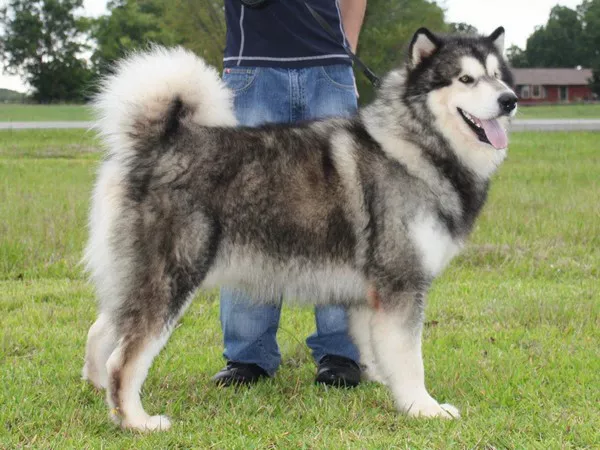Introduction
The Alaskan Malamute is a large, powerful dog breed that was originally bred for sledding and pulling heavy loads. They are known for their friendly and gentle temperament, but they can also be quite protective of their families. Alaskan Malamutes have a strong bite force, which can be dangerous if they are not properly trained and socialized.
Bite Force
The bite force of an Alaskan Malamute is typically between 200 and 250 pounds per square inch (PSI). This is significantly stronger than the bite force of other popular dog breeds, such as the Golden Retriever (150 PSI) and the Labrador Retriever (230 PSI).
Factors Affecting Bite Force
The bite force of an Alaskan Malamute can be affected by a number of factors, including:
Size: Larger Malamutes tend to have stronger bite forces than smaller Malamutes.
Gender: Male Malamutes tend to have stronger bite forces than female Malamutes.
Age: Bite force increases with age until a dog reaches maturity, at around 2 years old.
Training: Well-trained Malamutes are less likely to use their bite force aggressively.
Risk of Injury
The risk of injury from an Alaskan Malamute bite is relatively low. However, it is important to be aware of the potential for injury, especially if you have children or other small animals in your home. If you are bitten by an Alaskan Malamute, it is important to seek medical attention immediately.
Preventing Bites
There are a number of things you can do to prevent an Alaskan Malamute from biting, including:
Proper training: Alaskan Malamutes need to be trained from a young age to be gentle and respectful of people and other animals.
Socialization: Alaskan Malamutes should be socialized with a variety of people and animals from a young age to help them learn how to interact appropriately.
Supervision: Alaskan Malamutes should always be supervised when they are around children or other small animals.
Management: Alaskan Malamutes should be properly managed to prevent them from becoming aggressive. This includes providing them with adequate exercise, training, and socialization.
Conclusion
Alaskan Malamutes are powerful dogs with a strong bite force. However, they are also known for their gentle and friendly temperament. With proper training and socialization, Alaskan Malamutes can make wonderful family pets.
Additional Information
History: The Alaskan Malamute is a relatively old breed, with its origins dating back to the Arctic region of North America. They were originally bred by the Inuit people for sledding and pulling heavy loads.
Appearance: Alaskan Malamutes are large, powerful dogs with thick fur. They are typically black, white, or gray in color.
Temperament: Alaskan Malamutes are known for their friendly and gentle temperament. They are good with children and other animals, but they can also be quite protective of their families.
Health: Alaskan Malamutes are generally healthy dogs, but they are prone to a few health conditions, such as hip dysplasia, elbow dysplasia, and eye problems.
Grooming: Alaskan Malamutes require regular grooming to maintain their thick fur. They should be brushed at least once a week, and they should be bathed as needed.
Exercise: Alaskan Malamutes are high-energy dogs and require plenty of exercise. They should be walked for at least 2 hours each day.
Training: Alaskan Malamutes are intelligent dogs and are relatively easy to train. However, they can be stubborn at times, so it is important to be patient and consistent with training.
Cost: The cost of owning an Alaskan Malamute can vary depending on a number of factors, such as the dog’s age, size, and location. However, in general, Alaskan Malamutes are relatively expensive dogs to own.


